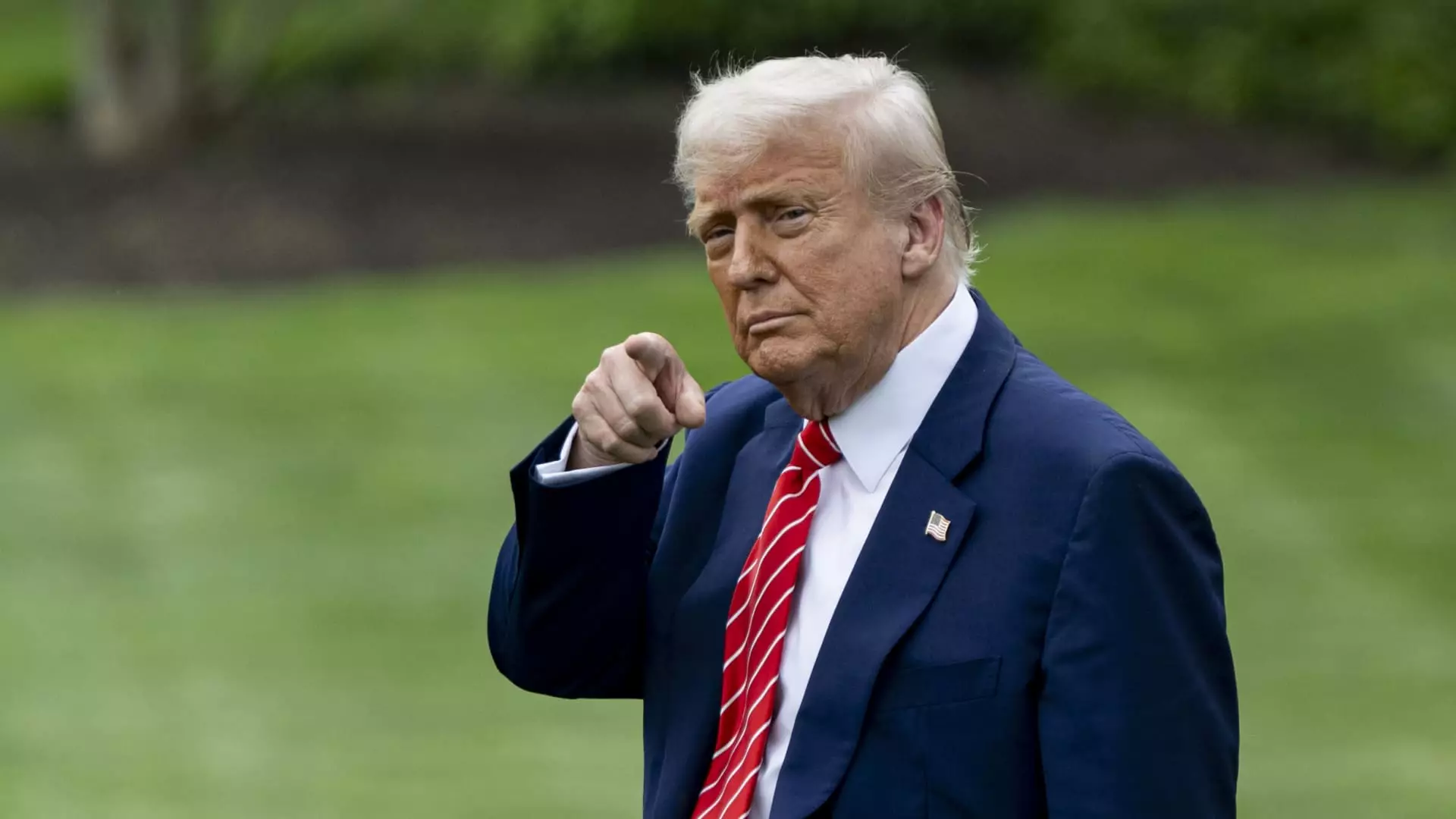As the Senate grapples with the White House’s expansive spending proposal, a particular piece of legislation, Section 899, has emerged as a thorny issue stirring discontent among financial titans on Wall Street. This provision, approved by the House, aims to impose a new tax of up to 20% on foreign investors, specifically targeting multinational corporations with operations in the United States. Framed by some as a “revenge tax,” it proposes punitive measures against foreign states that enforce what U.S. lawmakers deem “unfair foreign taxes” on American companies. While the intention may be purportedly noble—protecting American businesses—the potential fallout raises serious concerns about the stability and integrity of the U.S. investment landscape.
The Risks to Foreign Investment
Investors and institutions have begun to grasp the gravity of this amendment. Notably, James Lucier from Capital Alpha Partners noted that Wall Street was taken aback by the implications of Section 899, which could result in hefty taxes not only on income derived from investment but on a range of activities by foreign entities operating in the U.S. market. Ernst & Young warned that such a provision could lead to a regime of heightened withholdings, potentially soaring to 50% in certain scenarios. This might deter future investment from abroad, which is a dangerous gamble for an economy that thrives on foreign capital and innovation.
The Investment Company Institute’s cautionary remarks about the provision should not be overlooked. They highlight a scenario where foreign investment into U.S. markets becomes burdensome due to restrictive tax measures, ultimately leading to a more isolated economic environment. It raises a pivotal question: What happened to the principles of a free market that promotes collaboration and invitation, rather than instigation and hostility? The current leadership’s retreat to a fortress mentality endangers not only the growth of individual companies but also the economy at large.
A Potent Mix of Protectionism and Politics
Section 899 is not rooted solely in economic terms but is steeped in the political currents of our time. It aligns with a broader populist approach that oversimplifies complex economic relationships into a narrative of “us versus them.” The provision’s architects, led by figures like House Ways and Means Committee Chairman Jason Smith, appear to endorse an aggressive stance against “unfair” foreign taxation without sufficient consideration of the reciprocal harm it may invoke. A world where nations start wielding such a “revenge tax” weapon risks escalating into a chaotic and damaging international trade war.
Additionally, one has to question whether this type of legislation aligns with the aspirations of center-wing liberalism, which typically advocates for balanced solutions through cooperation over confrontation. The punitive approach embodied in Section 899 may resonate with specific political factions, but it ultimately hampers the potential for constructive dialogue regarding international tax policy reform. Pushing foreign nations toward tighter regulations or retaliatory measures can lead to an environment characterized by economic stagnation.
Is This What We Really Want? The Long-Term Consequences
While some proponents of this measure tout its potential to raise $116 billion over the next decade, one must ask, at what cost? Short-term fiscal gains should not blind lawmakers to the possible long-term repercussions of alienating foreign partners. When foreign firms consider the U.S. market, they are often weighing factors beyond just taxes—such as stability, transparency, and the general business environment. Increasing compliance risks through retaliation-based taxes only serves to create barriers, subsequently diverting investment flows to countries with more favorable regulatory architectures.
This legislation epitomizes a destructive trend, prioritizing aggressive taxation at the expense of long-standing relationships and fundamental economic principles. If the Senate approves Section 899 in its current form, it could spell disaster for the future of foreign investment in the U.S.
Finding Balance: The Path Forward
What emerges from the discourse surrounding Section 899 is a crucial need for bipartisan dialogue focused on modernization of the global taxation framework—rather than punitive approaches. The complexities of international taxation require specialized focus and should be resolved through negotiation rather than retaliation. Conciliatory measures and strategic partnerships could yield more sustainable benefits than aggressive taxation.
In echoing the sentiments prevalent in center-wing liberalism, one cannot stress enough the importance of collaboration over coercion in the global context. The U.S. economy must not forsake its role as a beacon of openness for an insular stance. Balancing regulatory diligence while maintaining an inviting business environment is not merely an ideal but a necessity for the flourishing of the economy in a rapidly changing global landscape.

